Inflammation has a positive and negative affect in your body. Inflammation has a positive side because it helps your body respond to stress. But chronic, low-grade inflammation is thought to be one of the leading causes of disease, premature aging, and illness.
When you get a cold, your body responds with inflammation in the form of a fever that helps you heal. The inflammation does its job, gets rid of the virus, and disappears. But if your immunity is compromised and your body is constantly stressed, you might experience chronic low-grade inflammation that leaves you more susceptible to illness and disease.
Scientists are just beginning to understand how widespread the effects of chronic inflammation may be throughout a person’s body and what kind of damage it might do. Chronic inflammation stresses arterial walls and is associated with the development of atherosclerosis, the buildup of fatty deposits in arterial linings.It’s also becoming clearer that inflammation may be behind insulin resistance, the reduced ability of the cells to respond to insulin, which is a cause of high blood glucose in Type 2 diabetes.
Decades ago, researchers identified higher levels of inflammation in the bodies of people with type 2 diabetes. The levels of certain inflammatory chemicals called cytokines are often higher in people with type 2 diabetes compared to people without diabetes.
Markers that indicate inflammation and are predictive of heart disease are higher in people with Type 2 diabetes than in those without, even when matched with other risk factors for inflammation such as body-mass index, smoking, and high alcohol consumption.
Lifestyle habits over time may play a role in chronic inflammation.Obesity and inactivity have long been known to be the most important risk factors that drive the development of type 2 diabetes.Excess body fat, especially in the abdomen, causes continuous (chronic), low levels of abnormal inflammation that alters insulin’s action and contributes to the disease.
Emotional stress can also increase levels of the chemicals of inflammation. It’s unknown whether stress by itself can contribute to the development of diabetes, though.
Physical activity releases a flood of anti-inflammatory chemicals into the body. Exercise also causes the body’s cells, especially muscle cells, to dramatically increase their sensitivity to insulin.
The increased insulin sensitivity from exercise also helps reduce chronic inflammation. The benefits are seen even with moderate exercise, like regular walking.Weight loss and increased physical activity can have strong anti-inflammatory effects and both are important for reducing the risk of type 2 diabetes.
Diet can also contribute to chronic inflammation. And some foods have anti-inflammatory properties.To move toward an anti-inflammatory diet and anti-inflammatory foods, we primarily move away from the abundance of overly processed, unbalanced diets of the West and toward the ancient eating patterns of the Mediterranean.

For more great Health and Nutrition Tips refer to the website positivehealthwellness.com.
An anti-inflammatory diet is rich in fish, vegetables, fruit, and nuts.The evidence is clear that such anti-inflammatory foods can regulate the immune system and impact the way inflammation affects our bodies and our lives.
Choose the right foods, and you may be able to reduce your risk of illness. Consistently pick the wrong ones, and you could accelerate the inflammatory disease process.
Anti-Inflammation Foods
Typically, foods known for their anti-inflammatory effects are rich in antioxidants, minerals, vitamins, and nutrients, which help the body combat inflammation and supply the body with essential components that support optimal function.
Here are the best anti-inflammatory foods to add to your diet.
Berries
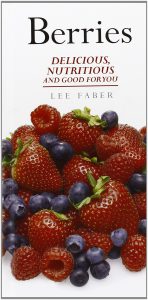
Berries (Health Benefits)
Over the past 10 years, research has revealed the health benefits of berries, including their impact on chronic diseases, including cancer, cardiovascular disease, diabetes, and age-related cognitive regression.
All berries, including raspberries, blackberries, and blueberries are high in antioxidants called flavonoids. Flavonoids contribute to anti-inflammatory effects by reducing free-radical damage to cells.
Cherries provide a delicious treat with many health benefits. Filled with antioxidants, essential vitamins, and additional nutrients, cherries burst with good stuff. Consuming about 45 (280 g) sweet Bing cherries can significantly decrease circulating concentrations of inflammatory biomarkers in the blood.
Anthocyanins, pigments found in both cherries and berries, are powerful antioxidants that work like magic-makers in the body. The darker the fruit, the more anthocyanins it contains, and the better it is for you. Anthocyanins are crammed with anti-inflammatory, anti-viral, and anti-cancer properties.
There’s really no reason not to try to up your berry intake. Experts recommend aiming for 1 cup a day.
Spices
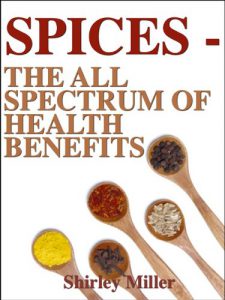
SPICES: A Whole Spectrum Of Health Benefits (Healthy & Tasty Series Book 3)
Turmeric, ginger, cinnamon, garlic, cayenne and clove are just a few examples of spices that can reduce inflammation and the pain associated with it. These ingredients have been used in Eastern Medicine practices for centuries; incorporating them into our cooking is an easy way to reap their benefits and makes our food taste even better.
Turmeric is a bright yellow spice often used in Asian cooking. Turmeric contains the active ingredient curcumin, which is an antioxidant that demonstrates anti-inflammatory properties in conditions such as arthritis, muscle sprains and other injuries.
In addition, turmeric may prevent and slow cancer growth, protect against liver disease and help reduce symptoms of digestive conditions such as irritable bowel syndrome. Simply adding turmeric to your daily cooking will increase consumption and enhance flavor.
Ginger contains very potent anti-inflammatory compounds called gingerols. These substances are believed to explain why so many people with osteoarthritis or rheumatoid arthritis experience reductions in their pain levels and improvements in their mobility when they consume ginger regularly.
For that reason, ginger should be considered as an all-natural remedy for treating a wide variety of inflammatory ailments, from migraines and headaches, to sore muscles, arthritic joints, and even menstrual cramps.
Drinking ginger as a ginger tea, ginger water, ginger juice, or ginger extract has shown to be an effective remedy for soothing digestive ailments or nausea. It can even be applied topically, though it may cause some skin irritation. Ginger supplements may also be taken for treating nausea and inflammatory purposes.
Cinnamon is best known as a blood sugar stabilizing superhero, and also contains a host of antioxidant, anti-inflammatory, and antibacterial compounds, making it a powerful tool for preventing blood sugar spikes and systemic inflammation.
Apart from the beneficial effects on insulin resistance, cinnamon can lower blood sugar by several other mechanisms.
First, cinnamon has been shown to decrease the amount of glucose that enters the bloodstream after a meal.
It does this by interfering with numerous digestive enzymes, which slows the breakdown of carbohydrates in the digestive tract .
Second, a compound in cinnamon can act on cells by mimicking insulin.
This greatly improves glucose uptake by cells, although it acts much slower than insulin itself.
Numerous human trials have confirmed the anti-diabetic effects of cinnamon, showing that it can lower fasting blood sugar levels by up to 10-29%.
Also Cinnamon has been linked with reduced risk of heart disease, the world’s most common cause of premature death.
In people with type 2 diabetes, 1 gram of cinnamon per day has beneficial effects on blood markers.
It reduces levels of total cholesterol, LDL cholesterol and triglycerides, while HDL cholesterol remains stable .
Cinnamaldehyde, the main active component of cinnamon, may help fight various kinds of infection.
Cinnamon oil has been shown to effectively treat respiratory tract infections caused by fungi.
It can also inhibit the growth of certain bacteria, including Listeria and Salmonella.
The antimicrobial effects of cinnamon may also help prevent tooth decay and reduce bad breath .
Garlic is packed with antioxidants that prevent and treat colds, and it is also known for its anti-bacterial and antiviral properties. Garlic can benefit you on many different levels: it can boost your immune system, it can help you get rid of acne, it can help you keep your immune system under control .
In addition to its antibacterial, antiviral, and antioxidant properties, garlic also contains a sulfuric compound called allicin, which has an anti-inflammatory effect. It’s also a super-easy (and tasty!) addition to almost anything you’re cooking up—veggies, soups, meat, sauces—and the finer you chop it, the more allicin is released. Research shows it may also help you lose weight.
Cayenne is most commonly known as a food spice but it may have a number of health benefits, particularly for inflammation. Cayenne pepper has been shown to have more antioxidant activity than many vegetables. Also known as capsaicin, the active chemical in cayenne has been used to treat gastrointestinal disorders, arthritis and pain and may be of use in certain types of cancer.
It’s also used for conditions of the heart and blood vessels – including to improve poor circulation, reverse excessive blood clotting, lower high cholesterol and prevent heart disease.
Cayenne pepper is typically added to food in either its natural or powdered form, and some people use it as a cream or capsule in order to take advantage of its detoxifying properties.
Cloves have extremely high antioxidant values. In fact, one study that evaluated food from around the world found that cloves have the most antioxidants per gram weight of all foods sampled.
Cloves contain one compound that is particularly potent when compared to other components of the herb. This compound is eugenol, and it acts in a very similar manner to cinnamaldehyde.
Eugenol works partially by inhibiting an enzyme that’s responsible for causing an inflammatory response. This is actually the same enzyme that non steroidal anti-inflammatory drugs target, making cloves and clove oil one of the most potent natural anti-inflammatories that you can find.
Dosages of clove oil can be effective at reducing inflammation topically with as little as a single drop.
There are many anti-inflammatory spices out there and it’s important to know which ones are effective and what doses you should take for the best benefit.
Refer to another excellent article on the health benefits of Turmeric!
Click the following link https://lyfebotanicals.com/health/turmeric-benefits
Fatty Fish

Eating the Bible: Over 50 Delicious Recipes to Feed Your Body and Nourish Your Soul
Research shows that the omega-3 fatty acids in fish like salmon, tuna, mackerel and herring help significantly decrease serum concentrations of inflammatory markers, in addition to boosting brain and heart health.
They’ve also found that omega-3s can help fight diabetes in obese mice, pointing the way to potential therapies in humans.
Omega 3 Polyunsaturated Fats consist of eicosapentaenoic acid (EPA), docosahexaenoic acid (DHA), and alpha linolenic acid (ALA). The body cannot manufacture them, so it is important we get enough through the diet. This is why they are sometimes referred to as ‘essential’ fatty acids. EPA and DHA are the most potent of the Omega 3’s with the highest anti-inflammatory effect.
Oily fish, like salmon, mackerel, tuna and sardines, are high in omega-3 fatty acids, which can help reduce inflammation. In a 2009 study, men who consumed the most omega-3s each day from baked or boiled fish (as opposed to fried, dried or salted) cut their risk of death from heart disease by 23 percent, compared with those who ate the least.
Fatty fish is also rich in B vitamins, which are key in helping your body convert food into energy, and also in repairing your DNA. To reap the benefits of omega-3s, aim to eat fish several times a week, cooked in healthy ways.
Not a fan of fish? Fish oil supplements may help lower inflammation. Also, reduce your intake of omega-6 fatty acids (found in processed foods and some vegetable oils); a healthy balance between omega-3s and omega-6s is essential!
Leafy Greens
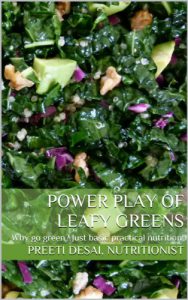
Power Play of Leafy Greens: Why go green? Just basic practical nutrition! (Eat Well Series from Gud2eat.com Book 1)
Leafy green veggies like kale,celery, Swiss chard, collard greens and spinach are rich in antioxidants that restore cellular health, as well as anti-inflammatory flavonoids. They also provide a concentrated dose of important vitamins and minerals like vitamins A, C, and K, as well as potassium.
Kale is rich in anti-inflammatory and anti-cancer nutrients, as well as antioxidants. In addition to vitamin E, Kale is rich in vitamin K and Omega 3 fatty acids – both of which are powerful anti-inflammatories.
In addition to containing powerful anti-inflammatory vitamins and nutrients, kale is packed with other nutritionally rich vitamins and minerals. Combine all that nutrition with its low calories – about 33 calories per one cup of chopped Kale – and you’ve got yourself one healthy snack.
In addition to its anti-inflammatory properties, broccoli has the potential to help recover from vitamin D deficiency – a common deficiency worldwide.Broccoli is rich in vitamins K and A, both of which are necessary to help keep vitamin D metabolism in equilibrium.
Cauliflower is rich in antioxidant and anti-inflammatory nutrients. In addition to the powerful antioxidants vitamin C and manganese, cauliflower contains phytonutrients, which have a wide variety of antioxidants to fight harmful free radicals that damage and kill cells.
Cauliflowers vitamin K content makes it a powerful anti-inflammatory food. By fighting chronic inflammation and oxidative stress – cauliflower significantly decreases our risk of cancers and chronic diseases.
Like many green vegetables, brussel sprouts are a great source of fiber, which is important for lowering cholesterol. In addition to lowering cholesterol, brussel sprouts contain powerful anti-inflammatory properties such as glucobrassicin and vitamin K. Glucobrassicin, helps inhibit the inflammatory response in its early stages. Vitamin K helps regulate and protect against excessive and chronic inflammation.
Crunchy, crispy celery is well known for being low in calories, but its health benefits go far beyond use as a diet food. Celery contains useful phytonutrients, vitamins and minerals. It’s a convenient on-the-go snack as well as a vegetable that can be incorporated into cooked dishes, stir-fries and salads.
Celery juice contains over 20 anti-inflammatory compounds that not only lower your blood pressure and reduce the secretion of stress hormones, but it also helps strengthen the immune system, keeps cholesterol levels healthy, fights cancer and aids in natural weight loss.
Celery is a nutritional powerhouse. It contains a high concentration of vitamin C, which is important for a strong and healthy immune system. It also helps eradicate free radicals and prevents mutated DNA (which normally leads to cancer).
Spinach contains over a dozen different anti-inflammatory phytonutrients. With two different categories of phytonutrients that fight inflammation – flavonoids and carotenoids – spinach stands out against other leafy vegetables. These natural chemicals give spinach powerful anti-inflammatory and pain relieving properties.
Swiss chard, in particular, is packed with antioxidants that can help protect your brain against oxidative stress caused by free-radical damage. As a general rule, the darker the shade, the more nutritious they are, so pile on all the greens!
Dark, leafy green vegetables are a fantastic source of many of the crucial vitamins and nutrients your body needs to stay healthy. If you’re not already incorporating them into your daily diet – you should start today! Not only will it help reduce your risk of cancer or chronic diseases, it will help provide relief from inflammation and pain.
Coconut Oil
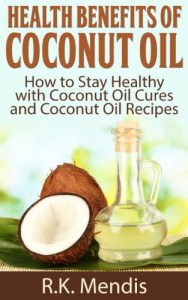
Health Benefits of Coconut Oil: How to Stay Healthy with Coconut Oil Cures and Coconut Oil Recipes
Coconut oil has long been touted for its wide-ranging health and medicinal benefits, and coconut beauty products are garnering lots of attention. But with all of its amazing uses, it’s easy to forget that simply cooking with the stuff is one of the best ways to utilize this versatile oil.
The unique type of fatty acids found in coconuts are more easily metabolized by the body than fats from other oils, making coconut oil a great source of energy and also a potent weight-loss tool.
It also contains lauric acid, which, when digested, helps fight off harmful bacteria, viruses, and fungi in the body.
Lauric acid, found in coconut oil is a particular form of fatty acid. For many years, people have avoided fatty acids such as lauric acid because people believed they were unhealthy. In actual fact, this lipid (another term for fat) is vital for the cells in the body and is essential to stop the body from starving.
The fatty acids, including lauric acid, are vital in protecting our vital organs and cushioning cell membrane to give our bodies further defence. Not only are they protective in nature, but they also provide invaluable energy and help with hormone production.
Unlike other fatty acids, lauric acid stands apart because of its incredible disease-fighting powers. As this lauric acid is digested, enzymes in the body can draw out a powerful substance, monolaurin. Monolaurin can then halt the growth of nasty, infectious pathogens and combat viruses. With coconut oil, the monolaurin production acts as a killer of infections and bacteria helping to treat serious conditions so that you can recover faster.
By taking coconut oil, you can help to treat infections such as the common cold, influenza, herpes and even HIV/AIDS. Not only does it help with these types of viruses, but it can also help with fungal infections. Instead of antibiotics, which are becoming less effective through their resistance, you may be able to treat fungal infections with delicious, healthy and affordable coconut oil.
Coconuts are well known to be the best source of this potent lauric acid (coconut oil is around 50% lauric acid), but you can also find traces of lauric acid in grass-fed cows butter, palm oil and genetically modified rapeseed oil.
Coconut oil is a tried-and-true superfood.Coconut oil is not only anti-inflammatory, it also boosts metabolism, helps balance hormones, is an anti-microbial agent and tastes delicious too.
Adding coconut oil into your daily routine is an excellent way to boost your immune system and protect yourself with its anti-viral properties. Including just one tablespoon of pure organic coconut oil into your diet every day can significantly help your body to fight bacteria and kill off any lurking infections.
Beets
Beetroot helps dilate vessels and improve blood circulation. It is one of the best anti-inflammatory foods that help reduce pains.
In the same family as spinach and chard, beets contain vitamins, minerals, antioxidants and fiber. They are also high in vitamins C and B6, folate, manganese, betaine and potassium.
Beets are a powerhouse of nutrients that help you process toxins, repair tissue and feed your mitocondria! Beets can literally push toxins out of your body. Beets contain a group of phytonutrients called betalains that support detoxification through increasing enzymes such as glutathione S-transferase, an important detox step in the liver.
When your liver is able to detoxify chemicals and toxins more effectively, then your body is better able to balance your hormones, keep your cholesterol levels in check, and improve your energy levels.
Betalain, the compound that gives beets its rich colour, is an exceptional rich source of antioxidants and protects cells from oxidative stress, a key factor in the development and progression of dementia and Alzheimer’s disease.
Beet juice can actually lower the amount of glucose in the blood. This benefit is due to the soluble fibers found in beets.
Also Beetroot juice can lower blood pressure. In fact, when you consume the juice, you will find your blood pressure drop instantly and stay lowered for up to twenty-four hours.
Researchers believe that this impact on blood pressure is due to naturally occurring nitrates found in beets. All vegetables contain nitrates, but an average-sized beet contains 20 times more dietary nitrates than any others. In fact, beets are top-rated for Nitric Oxide production.
Research has indicated that beets are a rich source of a mineral called boron that is directly linked to the production of sex hormones. In addition, the nitric oxide that is produced in the body when you eat beets increases blood flow and give your sex drive a kick start.
Keep in mind naturally occurring nitrates are healthy but the ones found in processed food like hot dogs and lunch meet are not.
Researchers have found that beets can help fight against both cancerous tumors and leukemia. In a recent clinical trial, 22 patients with advanced inoperable cancers were given 10 ozs. of beet juice for 3-4 months and showed dramatic improvements.
Beets contain an antioxidant called beta-carotene which is also present in many other vegetables like carrots and famously aids vision and eye health. This compound can slow down macular degeneration which is often linked to the damaging effects of free radicals.
Beets are an especially good choice for women during pregnancy because they contain many of the B vitamins including folate which can help your fetus to develop properly. A deficiency in folate has been linked with certain neural birth defects.
It is not difficult to add beets to your diet. They are absolutely delicious whether you choose to juice them or add them to your salad dishes.
Many people simply throw away the beet greens but they have plenty of nutritional value that should not be wasted.
Beet greens are a great source of minerals like zinc, potassium, manganese and copper. And as regards iron, beets actually contain more of it than spinach!
Pineapple

The Magic of Pineapples – Knowing More About Pineapples (Health Learning Series Book 1)
Pineapple is a tropical fruit widely available in most grocery stores and produce markets. It is rich in manganese and contains plenty of copper, fiber and vitamins B-1, B-6 and C. While these nutrients are important to health, it is the bromelain present in pineapple juice that gives the fruit its anti-inflammatory properties.
Pineapple juice may reduce inflammation associated with arthritis and other joint disorders, and reduce the swelling of soft-tissue injuries. The bromelain in pineapple juice may also ease inflammation in digestive disorders, such as ulcerative colitis and Crohn’s disease, according to research studies.
When you use pineapple for inflammation, it is obviously best to eat them fresh and raw. Bromelain is present in its highest concentration in the skin of the fruit. Many people assume that it is in the pulp, but this is not true. This is why you should not throw away the skin of pineapples. The recommended daily intake of pineapples is two standard-sized slices.
When you eat pineapples, it is only natural that you do not eat the skin. However, when you are making the juice, leave the skin on. It is the best way to gain all the benefits this delightful fruit has to offer.
You can also take bromelain supplements to treat inflammation and other problems. These supplements can be found in capsule, tablet, and liquid forms. According to experts, you should take 500 to 1,000 milligrams of bromelain supplements on a daily basis.
Although natural treatments are free from side effects, it is best to consult your doctor before using them, especially as supplements.
In some cases, bromelain may cause diarrhea or vomiting, an increase in heart rate or allergic reactions .
People with high blood pressure, liver disease, kidney disease or bleeding disorders should be careful while using bromelain supplements, and must use them only under a doctors’s supervision.
Nuts And Seeds

Sometimes You Feel Like a Nut: The Amazing Health Benefits of Superfood Nuts and Seeds: With Smoothie Recipes for Good Eyesight and Heart Health (Superfoods Series Book 6)
Nuts and seeds are not only made of polyunsaturated fats, such as omega-6s and omega-3s, but most of them also contain tons of monounsaturated fats, protein, fiber, vitamin B6, vitamin E, minerals and phytochemicals. And, many of these nutrients have anti-inflammatory effects.
Most common nuts – including almonds, Brazil nuts, cashews, hazelnuts, macadamia nuts, peanuts, pecans and pistachios – contain more monounsaturated fatty acids (MUFAs), particularly oleic acid, than polyunsaturated fatty acids.
The great thing about most of these nuts is that they’re very versatile, making a great between meals snack or adding flavor to any main dish or side dish.
Most nuts and seeds are loaded with vitamin E, either in the form of alpha-tocopherol or gamma-tocopherol.
Alpha-tocopherol, which is abundant in almonds, hazelnuts, pine nuts and sunflower seeds, has been shown to exert anti-inflammatory effects through multiple mechanisms, including decreasing levels of CRP and pro-inflammatory cytokines and inhibiting the activity of protein kinase C and other enzymes, such as cyclooxygenase-2.
Also gamma-tocopherol – a type of vitamin E found in high amounts in Brazil nuts, cashews, pecans, pine nuts, pistachios, walnuts, flaxseed, pumpkin seeds, poppy seeds and sesame seeds – has been shown to exert anti-inflammatory activities in some laboratory and animal studies.
Research shows that walnuts have double the antioxidant activity of other nuts. Antioxidants fight free radicals that damage cells and trigger inflammation. Plus, you don’t need to eat a lot of walnuts to get the benefits, only about seven walnuts a day. That’s doable!
You can add chopped walnuts to salads, hot cereal, or grind them up finely and sprinkle them on vegetables. The healthy fats in walnuts boost the absorption of fat-soluble vitamins too. Walnuts also contain the highest content of short-chain omega-3s of all nuts, a type of fat with anti-inflammatory activity.
The protein and fiber in nuts and seeds promote satiety, which in turn may help combat obesity, a common risk factor for chronic inflammation. Just keep in mind that nuts and seeds are also pretty high in calories, so only eat them in moderation to keep your overall calorie intake in check.
Yes, nuts and seeds do fight inflammation and they each have their own special benefits. To get the benefits of all, enjoy mixed nuts and seeds as an alternative to processed unhealthy snacks, like crisps. Your body will thank you!
Water

The Wonders of Water – How H2O Can Transform Your Life: Vitality, Detox, Weight Loss, Quality Water, Benefits (Water Health, Vitality, Weight Loss, Fruit Infused Book 1)
A lack of adequate water intake can result in serious health conditions along with fatigue, foggy thinking, headaches, joint pain, hunger, cravings, weight gain and much more.
Studies have shown that if we decrease our water intake our fat deposits will increase. Conversely, an increase in water intake will reduce fat deposits.
Severe dehydration is dangerous. It can bring on seizures, brain damage, and even death. Minor dehydration can aggravate conditions like constipation or urinary tract infections.
Even dental problems can arise from dehydration due to a lack of saliva in the mouth, which can be a problem for aging teeth. In otherwise healthy people, dehydration is most likely to occur after a bout of vomiting or diarrhea.
Our bodies are comprised of 70% water. That water must be continuously replaced. What we replace it with makes a profound difference to our health.
Water maintains moisture in the body; it transports oxygen to the blood, and helps carry nutrients through blood. Water is necessary to maintain an ideal internal body temperature – in fact, nearly every biological function requires the help of water.
Unfortunately, in today’s society, too many people replace their fluids by drinking soft drinks, coffee and other highly acidic fluids.Many researchers believe that acidosis, or an excess of acids in the body is epidemic in society today and may be a direct cause of most unhealthy inflammatory conditions.
This is why health professionals stress water as the best replacement fluid.
We all like to have a “cuppa” throughout the day and in the evening. This can be a great way to manage inflammation. Green tea is known to be high in anti-oxidants, which help reduce inflammation and fight disease. If you drink green tea made with ionized water regularly, it may be the best “medicine” you can take.
Finally, when it comes to how much water you should be drinking each day, let your body be your guide. You have a built-in hydration meter: your urine. If it’s dark yellow or orange in color, or if it has a distinctive or strong odor, you may be dehydrated, though certain medications can turn urine orange.
The usual colour for healthy urine is light yellow, or straw-colored. Remember: your body will use water from any source, including healthy fruits and vegetables !
Developing a healthy eating plan can sometimes seem difficult but like anything that is new, it becomes second nature over time.
And the payoff is well worth it: With a proper diet, you can take a proactive stance against inflammation, aging, and disease by incorporating these superfoods into your life.
One of our readers recommended great information on healthy diet.
Refer to the following articles.
How to Create a Healthy Home Environment that Will Soothe Autoimmune Disease Symptoms
What are the complications of diabetes?
If you have any information,questions, or feedback you would like to include in this post.
Please email momo19@diabetessupportsite.com or leave your comments below.
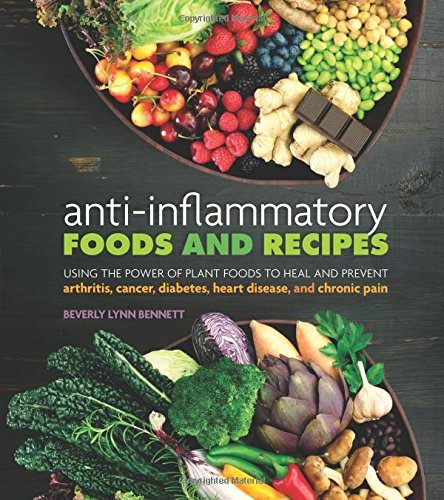




I’m glad I ran into this post. I’m a type 2 diabetic. All from eating poorly. Doctor loves to see me coming. Very hard to avoid some of the ingredients your suppose to stay away from. I guess if I put more time into proper grocery shopping that would help. Little lazy shopping for groceries sometime. This post gave me a lot of new ideas. Very informative. I will share this with my followers. A lot of people with type 2 diabetes.
Many thanks to you for sharing such an excellent article with me. My father has been diabetic for 3 years so am very aware of that. And he has type 2 diabetes so he had to take insulin every day .And through your article I learned that it can cause various types of heart problems, including high blood pressure .Physical activity improves the appearance of anti-inflammatory chemicals in the body and increases insulin sensitivity from exercise to help reduce chronic inflammation .And weight loss can help keep diabetes under control .The anti-inflammatory diet can control the anti-inflammatory diet of fish, vegetables, fruits and nuts and can affect life in many ways .I feed my father the foods your articles provide, such as Berries, Spices, Fatty Fish, Leafy Greens. As well as regular exercise my father .Green tea is known for its high levels of anti-oxidants, which help a lot in reducing inflammation and preventing disease.
Lastly, I would like to drink a lot of water every day and make myself aware of my health so that everything can be solved.
Some of the foods you mentioned that are among the best anti inflammatory foods for Diabetes are ones that i use quite a lot. Things like natural garlic, ginger. As well as mackerel, tun and sardines.
However i did not even know there was such a thing as Krill Oil.
I know that Krill are eaten in various parts of the world (i may even have eaten them myself in China), so i am wondering if eating Krill is a viable alternative to using Krill Oil to get the anti inflammatory benefits of Omega 3?
Hello Donald,
Krill is a rich source of high-quality protein, with the advantage over other animal proteins of being low in fat and a rich source of omega-3 fatty acids. Antioxidant levels in krill are higher than in fish, suggesting benefits against oxidative damage.
Hi,
Really good article, I specialise in helping to fix low testosterone and optimise their testosterone levels.
Chronic inflammation is one of the main causes of low testosterone; but I’ve learnt that it’s also a cause of several health problems, ranging things like psoriasis, diabetes, through to potentially depression & even cancers.
As far as I can tell chronic inflammation is the major cause of most major modern illnesses. I believe that in large part it’s due to poor diet & other elements of modern lifestyle.
A lot of the vegetables, fruit & even oily fish help improve testosterone production as well, which for me is further proof that there is certainly a link to inflammation & a lot of different health issues.